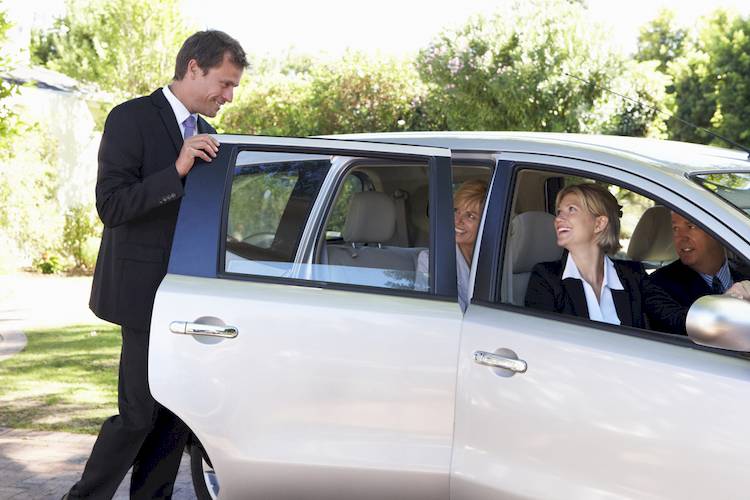

Car pool lanes have been around for a few decades, and are increasingly growing in popularity. There are now thousands of miles of car pool lanes across the country, and they greatly aid an enormous number of commuters on a daily basis. In car pool (or HOV, for High Occupancy Vehicle) lanes, only vehicles that are carrying the minimum number of occupants required are permitted. In most car pool lanes, you need to have two occupants to qualify for the lane, though that number is three in some areas, and even four on a select few freeways. Motorcycles are also allowed to drive in car pool lanes (even with one occupant), and in many states alternative fuel vehicles (plug-in electric cars, and sometimes gas-electric hybrids) are also allowed.
Car pool lanes generally operate at a high freeway speed, even during peak rush hours. This encourages people to carpool, whether they’re coworkers heading to their job, or simply friends or family members that need to be in similar places at similar times. By incentivizing carpooling, cars are removed from the road, which decreases traffic for everyone, cuts down on harmful carbon emissions, and lessens the damage to freeways (which in turn lowers the road repair costs for taxpayers). In short, by using car pool lanes, carpoolers save time and money, while also positively impacting a host of other things and people.
In states that have car pool lanes, the laws and regulations for them are some of the most important rules of the road. Carpoolers can dramatically benefit from car pool lanes, but if they break the rules they’ll be hit with a pretty hefty fine, so, as with all traffic laws it’s important to familiarize yourself with the rules so that you can obey them at all times.
Are there car pool lanes in Michigan?
Despite the fact that Michigan is the hub of North American automotive manufacturing, there currently are no car pool lanes on any of the state’s freeways. Detroit is a very large metropolis, and many people commute into and out of the city on a daily basis, so there’s no denying that the state could benefit from some car pool lanes on their freeways. However, the state’s major freeways were built before car pool lanes were popular, and public officials have decided that converting an all-access lane to a car pool lane would cause more damage than good. In order for Michigan to implement car pool lanes on their freeways, they will first have to add additional lanes to the roads.
There is one short car pool lane in Michigan that is not on a freeway. There is a highway car pool lane on Michigan Avenue, which is open on weekdays, from 6:00-9:00 AM, and 3:00-6:00 PM, for vehicles with at least two occupants (including the driver). This is a temporary lane that was created to help commuters who are funneled off the freeway while construction is performed on I-75.
Will there be car pool lanes in Michigan anytime soon?
While Michigan has no car pool lanes on their freeways, there are currently plans to change that. An enormous rebuild of I-75 is scheduled to begin sometime by early 2017 at the latest, and the plan is to add car pool lanes to most of the freeway, while also fixing some of the interstate’s other issues and wear and tear.
While the advent of car pool lanes in the future is exciting for Michigan drivers, the caveat is that the projected is planned for 14 years, and will cost $1 billion, so unrestricted use of car pool lanes is still far down the road for Michigan’s commuters. However, the freeway project will be done in steps, so presumably portions of the car pool lane will open up sporadically, allowing drivers to at least get partial carpooling benefits.
Some people are critical of Michigan adding car pool lanes to I-75, but since they already need to redo the freeway, it only makes sense that they would increase efficiency for commuters while they’re at it. It may take a while, but eventually Michigan drivers will get to reap all the rewards of a car pool lane.
While Michigan residents wait for the new car pool lane on I-75 to arrive, they should familiarize themselves with all of their states general driving rules and regulations, so that they can be the best and safest drivers possible when the car pool lanes open up.



